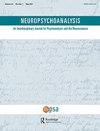The promise of affective science to advance psychoanalytic object relations theory
Q3 Psychology
引用次数: 1
Abstract
It is an honor and a privilege to comment on Dr. Kernberg’s landmark article. I met Dr. Kernberg personally 45 years ago as a senior medical student when he gave a visiting lecture. I greeted him afterwards and told him that I had a long-standing friendship with a close friend and colleague of his, the now late William Grossman. We shared a moment of connectedness through Bill that I have not forgotten, and I felt elevated by making a real connection with someone who was already a leading figure in the field. I share this anecdote to illustrate that I know Kernberg to be a legendary leader in psychoanalysis for over a half a century, someone who may arguably be the foremost authority on borderline personality disorder in the world. From that perspective, evaluating Kernberg’s contribution, including its pros and cons, feels somehow inappropriate. Who am I to pass evaluative judgement on the most recent thinking of a legend? This brings to mind the question of how advances in psychoanalytic theory take place. Psychoanalytic treatment is a unique context for observing and exploring the nature of the human mind, including its conscious and unconscious elements. The field of neuropsychoanalysis aims to realize Freud’s vision of understanding the mind based on its neural underpinnings. And yet in order to be considered knowledgeable enough to comment on the nature of the mind in psychoanalysis from a neural perspective, one must ideally have vast experience as a psychoanalytic practitioner. Following from the long tradition of Freud as the ultimate authority in the field, I believe the field only takes seriously highly experienced, blue-ribbon psychoanalysts as suitably knowledgeable to propose changes in psychoanalytic theory. It is for that reason that Kernberg’s article proposing fundamental changes in our conceptualization of drives and the dynamic unconscious based on neuroscience is to be so warmly welcomed. I agree with the broad outlines of Kernberg’s new ideas. I agree that we should revise our concept of drives to be fundamentally based on affect systems; I believe that a revision of our concept of the dynamic unconscious in light of advances in neuroscience is very much needed; I applaud the developmental perspective that he offers and broadly agree with the basic notion that behavior and fantasy are based on representations of self, others and the affective connections between them. There are many, many other statements and comments in this paper with which I agree, too numerous to mention. I think neuropsychoanalysis is fortunate that Kernberg has shared his perspective with us. I believe it really helps advance the idea that psychoanalytic theory can be updated by the integration of clinical experience and neuroscientific knowledge. Given the traditions of the field, and Kernberg’s enormous stature, other psychoanalysts are likely to follow his lead. We are therefore seeing progress in the making. As welcome as this is, it is also important to understand why views on these topics may continue to evolve. Although progress requires alignment between deep psychoanalytic knowledge and experience and the latest neuroscientific knowledge, there is a diversity of opinion in both the psychoanalytic and neuroscientific domains on key topics. As such, the theoretical perspective that one adopts in relation to psychoanalysis will influence the position one holds regarding the relevant neuroscience, and vice versa. As a psychodynamic psychotherapist, psychiatrist and neuroscientist, I have focused my academic career on emotion as it applies to physical health, mental health and psychotherapy. I believe the switch from instincts to affect proposed by Kernberg is very useful because we know so much more about emotion and affective systems than we did a century ago, or half a century ago. Moreover, and this is key, the science is now sufficiently developed that it will be an engine for情感科学对推进精神分析客体关系理论的承诺
我很荣幸能对克恩伯格博士的里程碑式的文章发表评论。45年前,当科恩伯格博士还是一名医学院大四学生时,我在一次客座演讲中亲自见到了他。之后我向他打招呼,并告诉他,我与他的一位亲密朋友和同事,现已去世的威廉·格罗斯曼有着长期的友谊。我们通过比尔分享了一个我没有忘记的联系时刻,通过与一个已经是该领域领军人物的人建立真正的联系,我感到自己被提升了。我分享这则轶事是为了说明,我知道克恩伯格是半个多世纪以来精神分析领域的传奇领袖,他可能是世界上研究边缘型人格障碍的最权威。从这个角度来看,评估克恩伯格的贡献,包括其利弊,在某种程度上是不合适的。我是谁来评判一个传奇人物最近的想法?这让人想到了精神分析理论的进步是如何发生的问题。精神分析治疗是观察和探索人类心灵本质的独特背景,包括其意识和无意识元素。神经心理分析领域旨在实现弗洛伊德基于其神经基础理解心灵的愿景。然而,为了被认为足够有知识,能够从神经的角度评论精神分析中的心理本质,理想情况下,一个人必须拥有丰富的精神分析从业者经验。根据弗洛伊德作为该领域终极权威的悠久传统,我相信该领域只会认真对待经验丰富、知识渊博的蓝丝带精神分析学家,以提出精神分析理论的变革。正是因为这个原因,克恩伯格的文章提出了对我们基于神经科学的驱动力和动态无意识概念化的根本性改变,因此受到了热烈欢迎。我同意克恩伯格新思想的大致轮廓。我同意我们应该修改我们的驱动力概念,使其从根本上基于情感系统;我认为,鉴于神经科学的进步,我们非常需要对动态无意识的概念进行修正;我赞扬他提供的发展视角,并广泛同意行为和幻想是基于对自我、他人及其之间情感联系的表征这一基本概念。我赞同这份文件中的许多其他发言和评论,不胜枚举。我认为神经心理分析是幸运的,克恩伯格与我们分享了他的观点。我相信这确实有助于推进精神分析理论可以通过整合临床经验和神经科学知识来更新的观点。考虑到该领域的传统,以及克恩伯格的巨大地位,其他精神分析学家可能会效仿他。因此,我们看到正在取得进展。尽管这很受欢迎,但理解为什么对这些主题的看法可能会继续演变也很重要。尽管进步需要深入的精神分析知识和经验与最新的神经科学知识相一致,但在精神分析和神经科学领域,对关键主题的看法各不相同。因此,一个人在精神分析方面所采取的理论观点将影响他对相关神经科学的立场,反之亦然。作为一名心理动力学心理治疗师、精神病学家和神经科学家,我的学术生涯专注于情感,因为它适用于身体健康、心理健康和心理治疗。我相信克恩伯格提出的从本能到情感的转变是非常有用的,因为我们对情感和情感系统的了解比一个世纪前或半个世纪前多得多。此外,这是关键,科学现在已经足够发达,它将成为
本文章由计算机程序翻译,如有差异,请以英文原文为准。
求助全文
约1分钟内获得全文
求助全文
来源期刊

Neuropsychoanalysis
Psychology-Neuropsychology and Physiological Psychology
CiteScore
2.50
自引率
0.00%
发文量
24
 求助内容:
求助内容: 应助结果提醒方式:
应助结果提醒方式:


